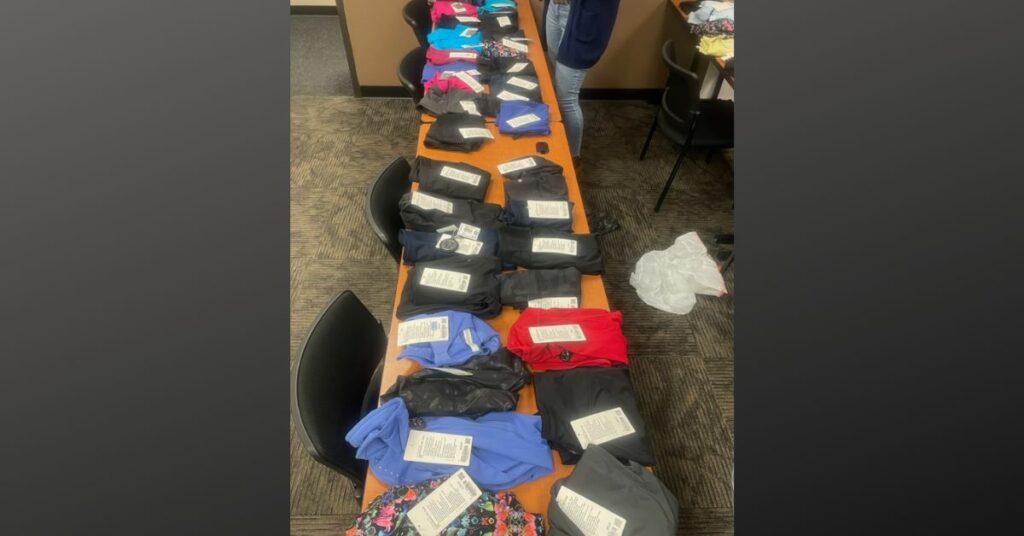Contents
The Biden administration’s regulation of “ghost guns”—online-purchased kits that can be put together to create untraceable handmade firearms—was temporarily restored by the Supreme Court on Tuesday.
Administration officials argued that such weapons had increased in popularity in recent years, notably among criminals who are prohibited from purchasing regular guns, in order to defend the regulation, a crucial component of President Biden’s larger campaign to curb gun violence.
As is customary when the justices rule on emergency applications, the court’s brief order included no justifications. The injunction was temporary, allowing the rule to remain in effect while a legal challenge is pending.
The court’s three liberal justices—Justices Sonia Sotomayor, Elena Kagan, and Ketanji Brown Jackson—joined Chief Justice John G. Roberts Jr. and Justice Amy Coney Barrett to create a majority in the 5–4 decision.
The dissents were cited by Justices Clarence Thomas, Samuel A. Alito Jr., Neil M. Gorsuch, and Brett M. Kavanaugh. Like the justices who voted in favor of the majority, they did not provide any justification.
The regulation expanded the bureau’s interpretation of the term of “firearm” in the Gun Control Act of 1968 and was published in 2022 by the Bureau of Alcohol, Tobacco, Firearms, and Explosives.
In the Biden administration’s emergency application, Solicitor General Elizabeth B. Prelogar stated that the modification was required to address “the urgent public safety and law enforcement crisis posed by the exponential rise of untraceable firearms.”
According to her, the new legislation required sellers and producers to obtain permits, brand their products with serial numbers, and undergo background checks, but it did not outright prohibit the sale or possession of kits and components that might be put together to make guns.
Gun owners, advocacy organizations, and businesses that produce or sell the kits and components filed lawsuits to contest the regulations, claiming that the 1968 statute did not authorize them.
Guns that “may readily be converted to expel a projectile by the action of an explosive” were included in the definition of firearms under that statute, as well as “the frame or receiver of any such weapon.”
The tweet below confirms the news:
BREAKING: The Fifth Circuit will hear a challenge to the ATF's ghost gun rule.
In the meantime, SCOTUS has allowed the ATF to continue to enforce its rule, which requires background checks and serial numbers for ghost guns.
Why? Because it's this simple 👇 pic.twitter.com/S4aV1gl0KK
— GIFFORDS (@GIFFORDS_org) August 8, 2023
Supreme Court Sides with Biden in ‘Ghost Gun’ Case
In July, Federal District Court for the Northern District of Texas Judge Reed O’Connor ruled in favor of the plaintiffs and overturned the regulation, declaring that “a weapon parts kit is not a firearm” and “that which may become or may be converted to a functional receiver is not itself a receiver.”
“Even if it is true that such an interpretation creates loopholes that, as a matter of policy, should be avoided, it is not the judiciary’s responsibility to close them,” he continued. Congress is in charge of that.
A three-judge panel of the Fifth Circuit of the United States Court of Appeals in New Orleans did not suspend key portions of Judge O’Connor’s decision.
The Supreme Court split along predictable lines when it overturned a New York gun control bill last year on Second Amendment grounds, with the six Republican appointments in the majority and the three Democratic appointees in dissent. A fresh division emerged in the decision in the new case, with Chief Justice Roberts and Justice Barrett voting more cautiously than the other four conservatives.
Ms. Prelogar requested the judges consider a comparison in the government’s emergency application.
“Every speaker of English would recognize that a tax on sales of ‘bookshelves’ applies to Ikea when it sells boxes of parts and the tools and instructions for assembling them into bookshelves,” she wrote.
You can also have access of current news and updates by clicking the links below:
- Hawaii Wildfires Force Evacuations, Residents Jump Into Sea to Escape Flames
- De@dly Midair Helicopter Crash Claims Lives of 3 Firefighters in California
Supreme Court Rules on ‘Ghost Guns’
One group of challengers claimed the comparison was incorrect in a Supreme Court brief.
“A better analogy would be to a ‘taco kit’ sold as a bundle by a grocery store that includes taco shells, seasoning packets, salsa and other toppings, along with a slab of raw beef,” the brief said. “No one would call the taco kit a taco. In addition to ‘assembly,’ turning it into one would require cutting or grinding and cooking the meat — and until that was done, it would be nonsensical to treat it as food and the equivalent of a taco.”
The two sides disagreed as to whether the number of handmade weapons has increased.
Ms. Prelogar wrote that there had been “an explosion of crimes involving ghost guns,” pointing to a sworn statement from an A.T.F. official. More than 19,000 firearms without serial numbers were recovered by the authorities in 2021, the official said, compared with about 1,600 in 2017. He added that in the 11 months ending in July, “a total of approximately 23,452 suspected privately made firearms were recovered at crime scenes and submitted for tracing.”
According to Ms. Prelogar’s article, these weapons are especially appealing to criminals and children because they “can be made from kits and parts that are available online to anyone with a credit card and that allow anyone with basic tools and rudimentary skills (or access to internet video tutorials) to assemble a fully functional firearm in as little as 20 minutes.”
The Biden administration’s statistics were contested in the challengers’ brief.
“The government’s alleged ‘epidemic’ of privately made firearms traced by the police appears to be largely an artifact of police departments changing their tracing practices in response to A.T.F. pressure,” the brief said, adding that “nothing in the government’s submission demonstrates that firearms made by individuals for their own personal use are fueling an increase in crime.”
Additionally, the brief objected to the term “ghost guns,” calling it “a propaganda term that appears nowhere in federal law” and a term that encompasses both firearms “that are manufactured lawfully by individuals and those that have their serial numbers illegally obliterated.”
You may count on us to keep you informed if there is a new update about this topic. In the meanwhile, if you visit our website focushillsboro, you will be able to read the most recent updates on stories that are linked to this topic.





